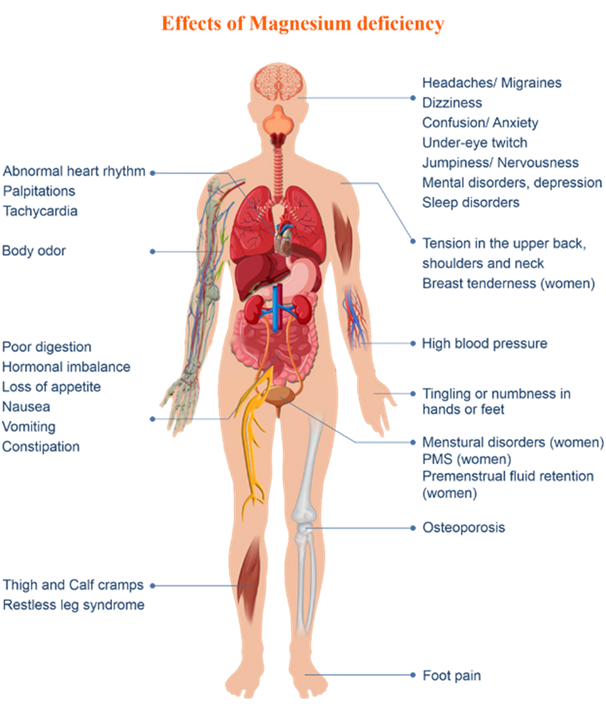Magnesium Deficiency Magnesium deficiency is a common issue among people who suffer from malnutrition, certain health conditions, chronic alcoholism, or taking specific medications.
Hypomagnesemia, which is characterized by serum Mg2+ levels below 0.7 mm, is more likely to occur in individuals with comorbidities like cardiovascular diseases, neuropathic diseases, metabolic diseases/disorders, and bone and muscle issues. If magnesium deficiency is suspected, serum magnesium levels should be measured directly and kept at appropriate levels. The ideal reference values are 1.7 to 2.2 mg/dL (0.85 to 1.10 mmol/L). (Ayyaswamy 17, 34, 59)
Nausea, vomiting, fatigue, and weakness are some of the early signs of magnesium deficiency. As the condition worsens, it may lead to symptoms like numbness, tingling, muscle contractions, cramps, seizures, personality changes, irregular heart rhythms, and coronary spasms. Severe magnesium deficiency may also cause hypocalcaemia and hypokalaemia due to an imbalance in mineral homeostasis. (Ayyaswamy 59 ,83, 85, 86)

Ayyaswamy, Gopi. A SUPER-ION CALLED MAGNESIUM: The Unsung Hero of Vitality and Well-being. Notion Press, 2023.